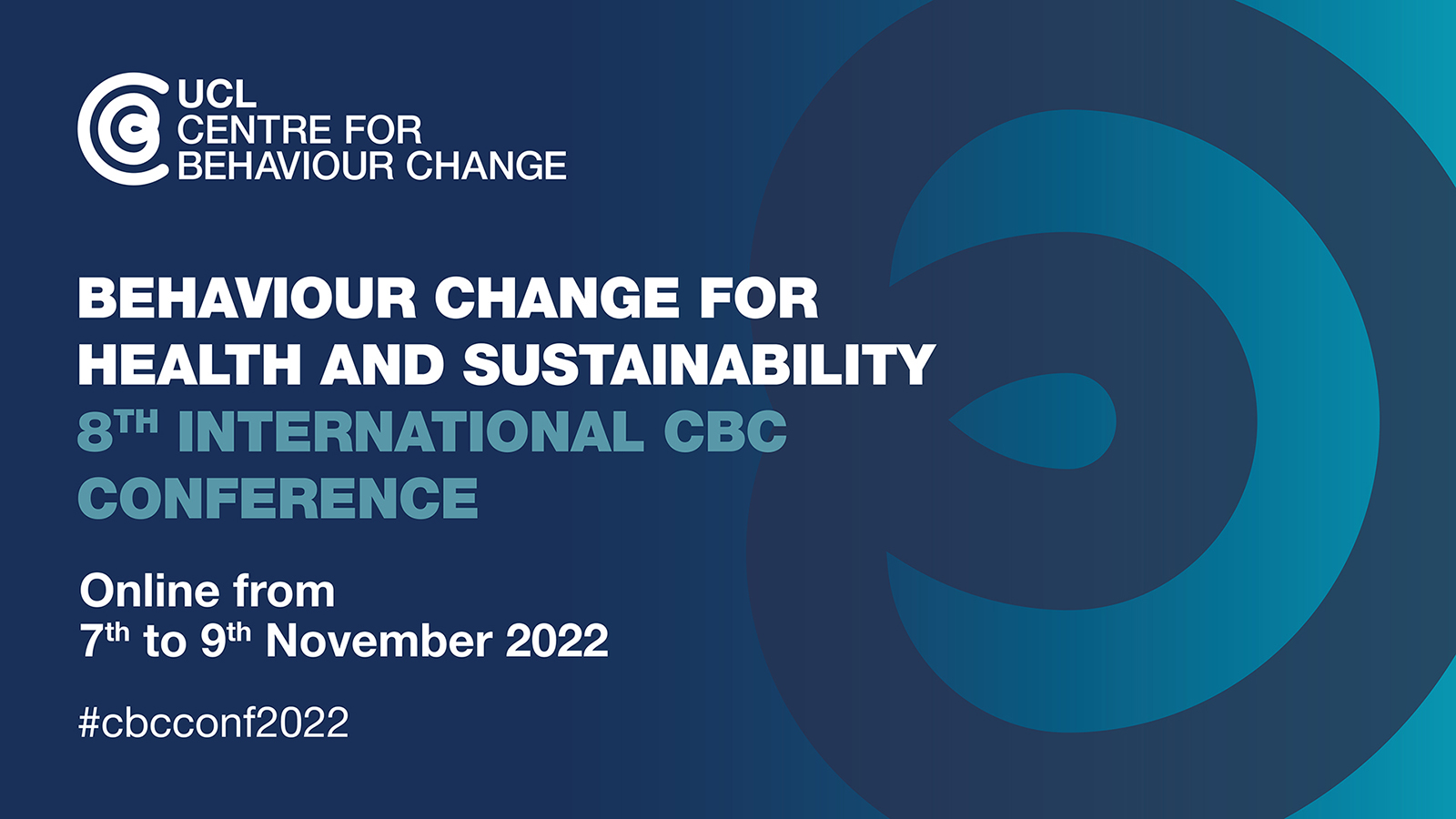CBC Online Conference 2022
Behaviour Change for Health and Sustainability #cbcconf2022
The 8th International CBC Conference was held online on 7th, 8th, and 9th November 2022.
Keynote Speakers
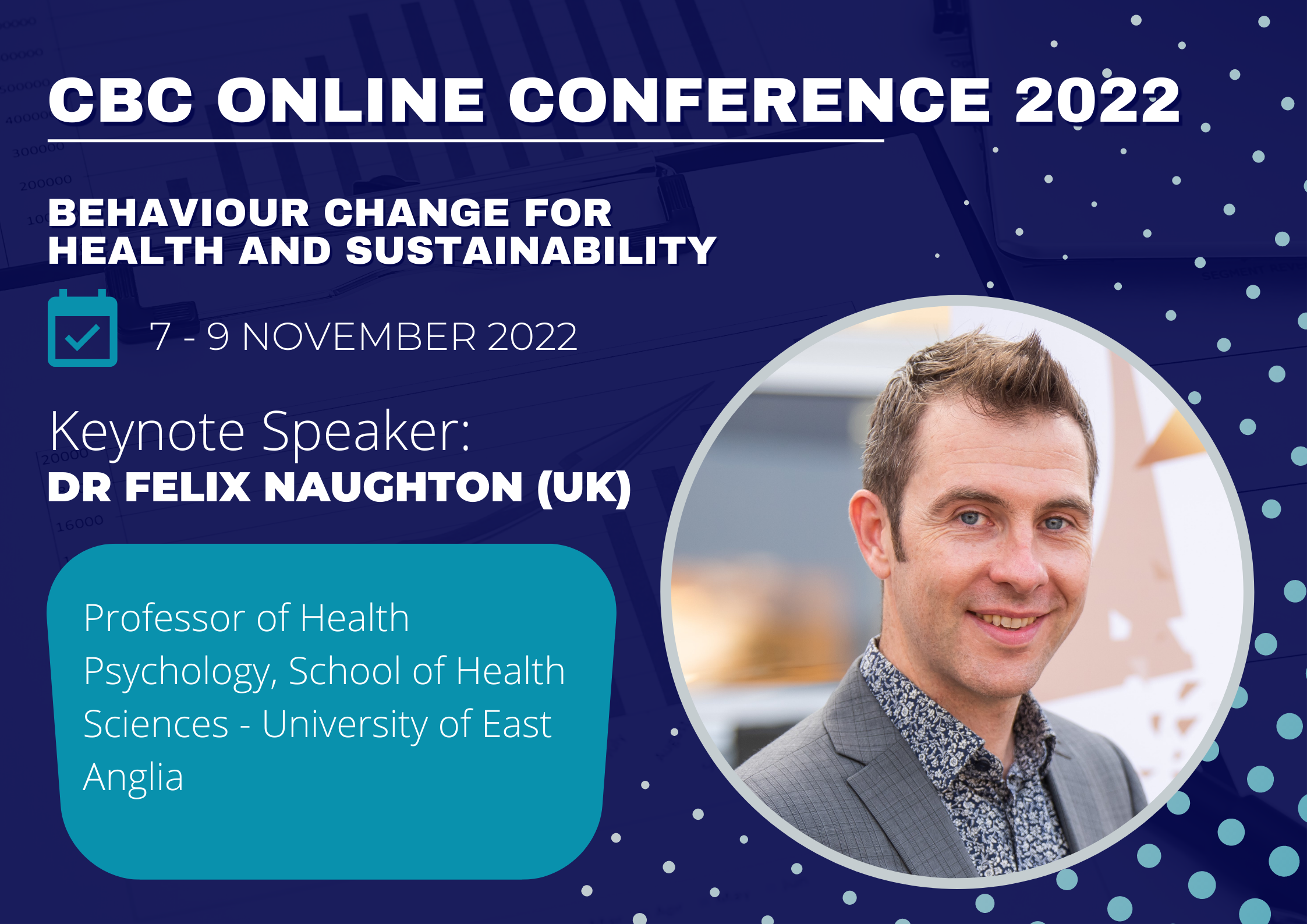
Felix is a Health Psychologist and has recently been appointed Professor of Health Psychology at the University of East Anglia (UEA). He leads a research programme focused on the development and evaluation of digital and technology-focused behaviour change interventions across multiple health behaviours, particularly smoking cessation. Felix has had topic expert roles on National Institute for Health and Care Excellence (NICE) guidance committees focused on behaviour change and is currently President of the Society for Research on Nicotine and Tobacco Europe (SRNT-E).
Felix’s talk focused on a key theme of his research - how digital health interventions can be tailored to individuals to maximise their relevance and impact. This includes the challenge of delivering real-time support adapted to in-the-moment psychological and situational factors.
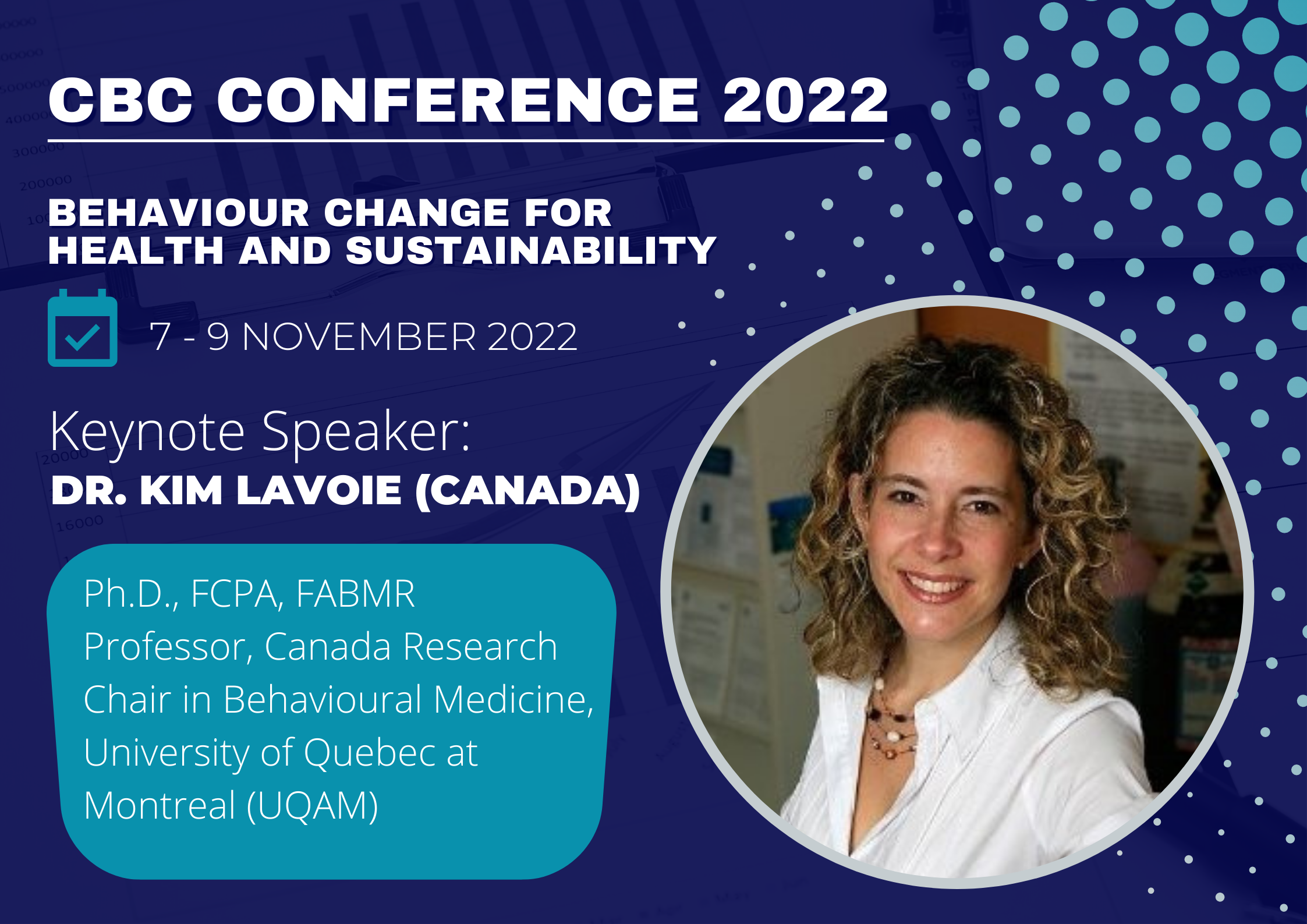 Dr. Lavoie is Full Professor in the Dept. of Psychology, at the University of Quebec at Montreal (UQAM), and holds a Tier 1 Canada Research Chair in Behavioral Medicine. She is the Co-Director of the Montreal Behavioral Medicine Centre, a fellow of the Canadian Psychological Association and Academy of Behavioral Medicine Research, and is a member of the College of the Royal Society of Canada She holds a number of national and international leadership positions including Co-Lead of the International Behavioral Trials Network and Chair of the Canadian Network for Health Behavior Change. She is currently on the Canadian COVID-19 Expert Advisory Panel for her expertise in motivation and behavioural change and is the PI of the iCARE Study. Dr. Lavoie is internationally recognized for her research on chronic disease prevention and the impact of behavioural interventions, such as motivational communication, on health behaviours and chronic disease outcomes. She has held more than $30 million in grant funding and has more than 200 peer-reviewed papers and book chapters.
Dr. Lavoie is Full Professor in the Dept. of Psychology, at the University of Quebec at Montreal (UQAM), and holds a Tier 1 Canada Research Chair in Behavioral Medicine. She is the Co-Director of the Montreal Behavioral Medicine Centre, a fellow of the Canadian Psychological Association and Academy of Behavioral Medicine Research, and is a member of the College of the Royal Society of Canada She holds a number of national and international leadership positions including Co-Lead of the International Behavioral Trials Network and Chair of the Canadian Network for Health Behavior Change. She is currently on the Canadian COVID-19 Expert Advisory Panel for her expertise in motivation and behavioural change and is the PI of the iCARE Study. Dr. Lavoie is internationally recognized for her research on chronic disease prevention and the impact of behavioural interventions, such as motivational communication, on health behaviours and chronic disease outcomes. She has held more than $30 million in grant funding and has more than 200 peer-reviewed papers and book chapters.
Kim's talk summarised the link between psychological stress and behavioural risk factors (e.g., smoking, poor diet, physical inactivity) for chronic disease (e.g. heart and lung disease), the importance of providing patients self-management support, and how digital solutions can help. Kim also described the challenges of doing this kind of work.
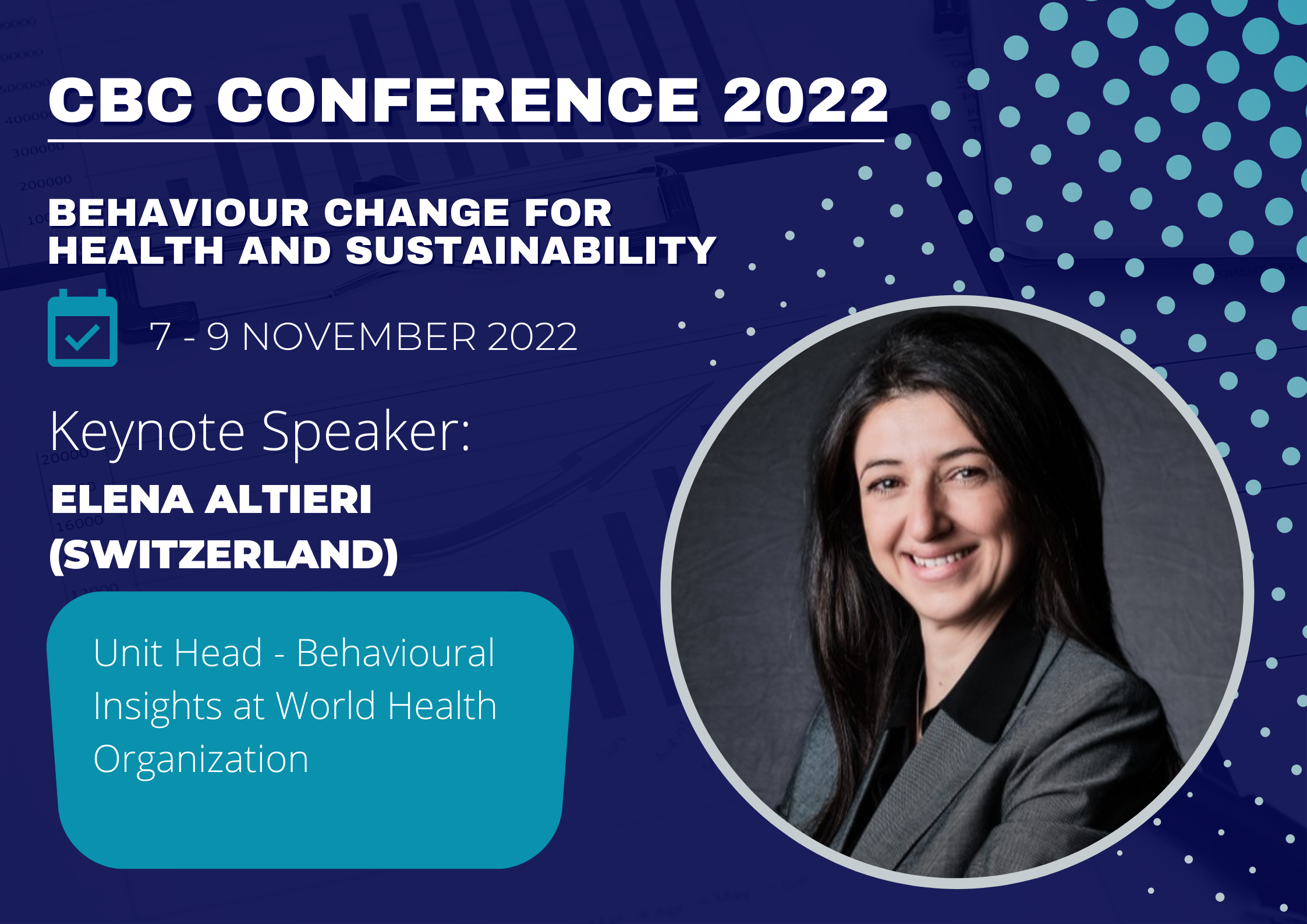 Elena is the Lead of the World Health Organisation's Behavioural Insights Unit.
Elena is the Lead of the World Health Organisation's Behavioural Insights Unit.
Elena’s talk provided a series of considerations and perspectives from the point of view of an intentional practitioner operating in a wide range of geographical contexts on a variety of health topics and types of activities. Elena reflected on how behaviour change approaches in health have changed across time; on the barriers and drivers to put in place behaviourally informed strategies; and on how to balance global thinking and guidance, with local action and impact.
Conference Themes
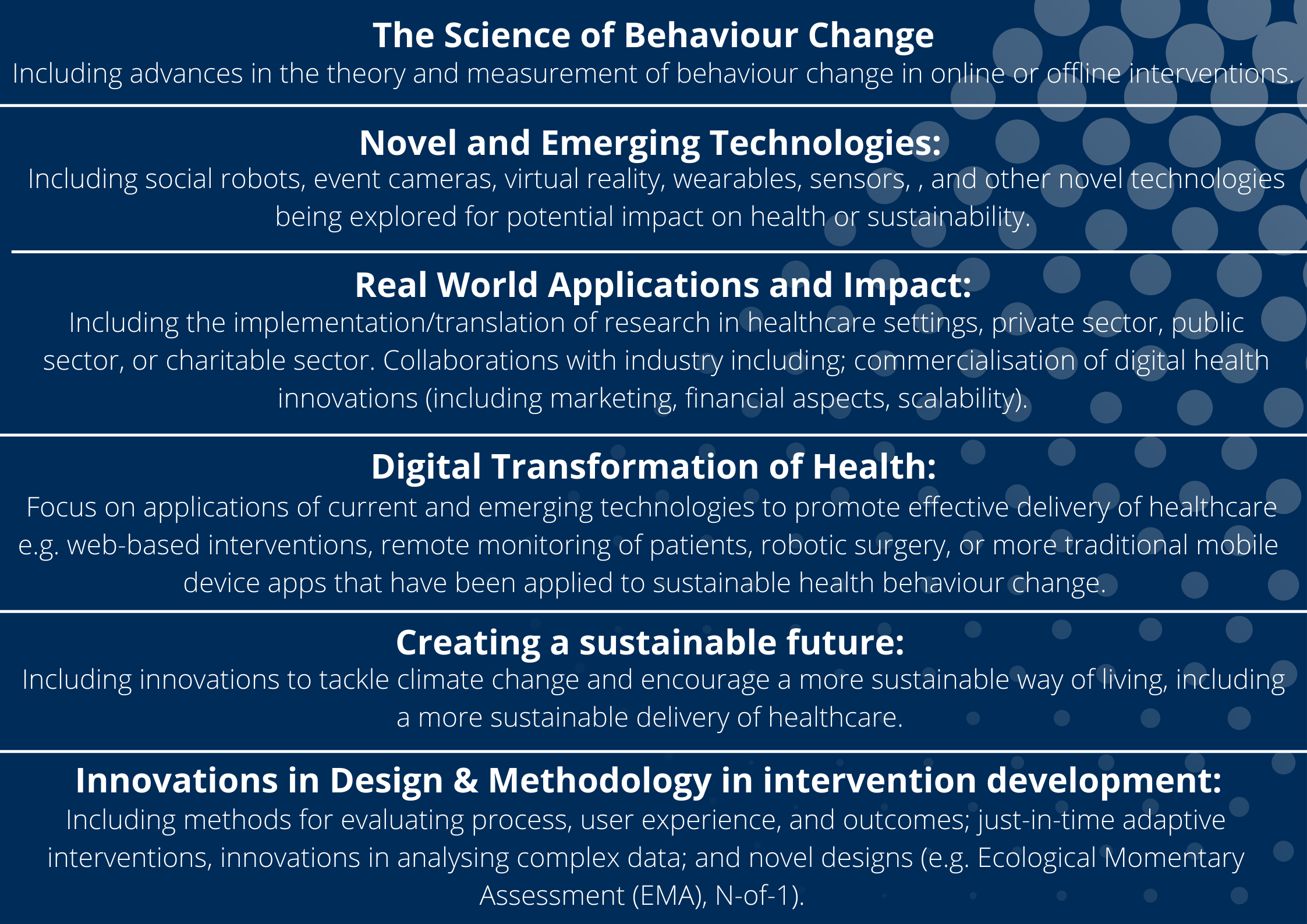
Post Conference Workshop 2022

How to develop popular and effective health apps: Lessons from the Smoke-Free app
Summary:
Although some health apps have many millions of users, evidence on health benefits is limited, and in most cases, engagement is low and short-term. It remains a significant challenge to develop apps that will be popular and provide a demonstrable health benefit. Dave Crane developed the SmokeFree app using behavioural science principles. The app has been used by more than 6 million people worldwide, and there is an ongoing programme of scientific evaluation and development. This workshop will provide an opportunity for participants to hear about and discuss the lessons learned from the development process.
Learning objectives for the workshop:
After attending the workshop, participants will be able to:
1. Critically examine features of health apps that increase the likelihood of achieving their specific health goals.
2. Evaluate ways in which health apps can maintain a scientific foundation.
3. Discuss the future of health apps and how they are likely to evolve.
Committee MembersThe CBC would like to thank the members of the International Advisory Board, Scientific, and Scientific Committees for their valuable contributions in steering the conference and organising programme.
A special thank you to our conference Scientific Co-Chairs, Prof Jane Walsh and Dr Eline Smit.
Questions
If you have questions about the event, email the conference team at behaviourchange@ucl.ac.uk.
Want to stay up to date on all news about future conferences? Join our mailing list by clicking the link below!
 Close
Close


